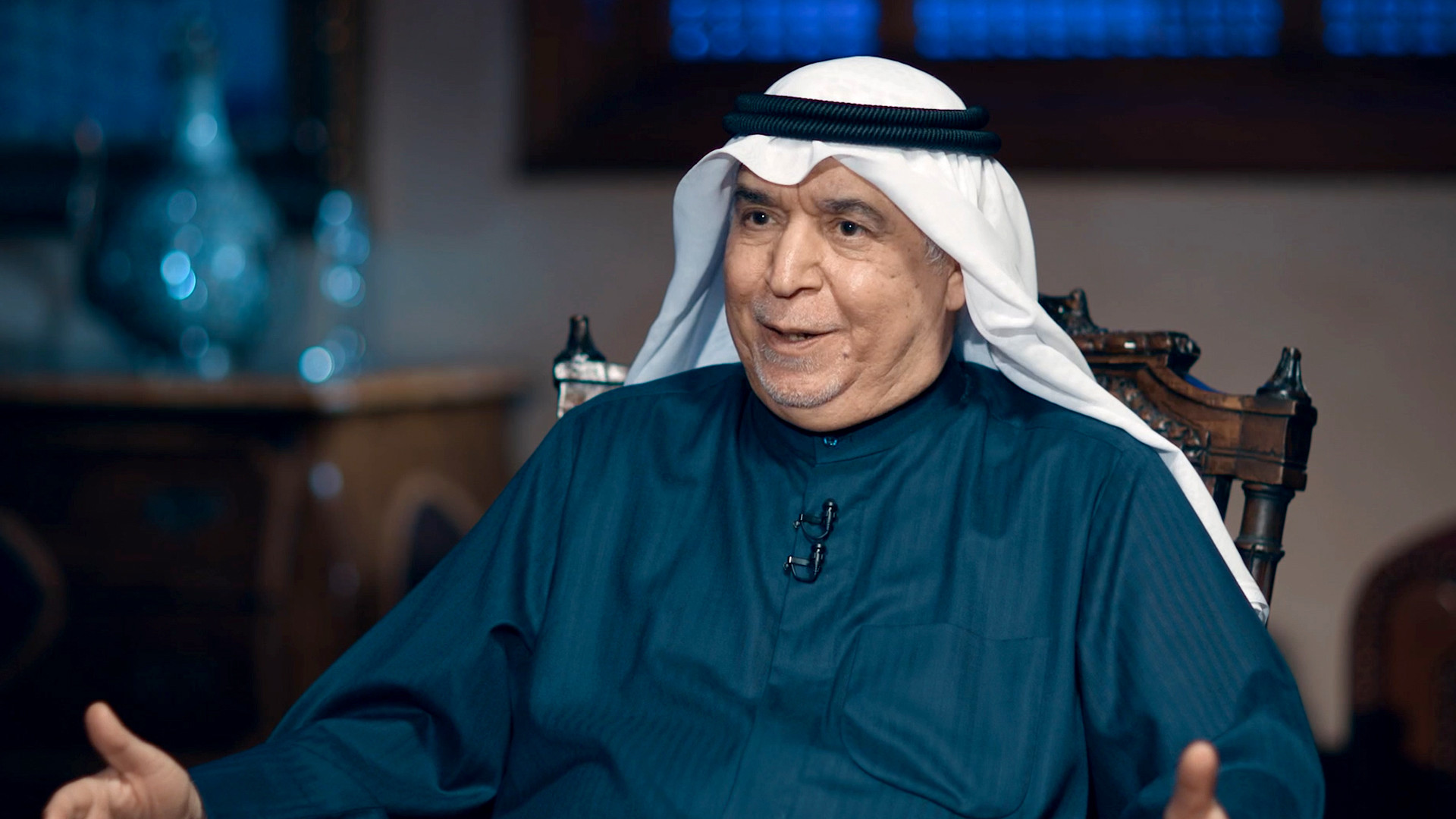Explaining the reasons for his transformation from an activist involved in the organization of the Muslim Brotherhood in Kuwait for 30 years to the nationalist ideology, Al-Shatti says that the positions taken by Islamists during the crisis of occupation of Kuwait made him lose confidence in the Islamic movement and decision-makers within the Islamic movements, because they were supposed to give priority to the moral factor over political factor.
While the interest in Arabism and the pan-Arabism of al-Shatti arose after the announcement of the Greater Middle East Project, which - according to al-Shatti - became clear that he wanted to eliminate the Arab League, and replace it with ethnic, sectarian, and regional entities, and he wanted to divide Egypt into 4 sections, Iraq into 3, and Morocco into 3, the Levant into 6 sections;
There will be new Berber, Arab, Saharan, Druze, Christian, Coptic and Nubian states.
Al-Shatti describes himself as an "Islamic Arabist", and believes that Arabism is the vessel of Islam, and any neglect of the association of Arabism is to strip Islam from its true vessel.
Although the relationship between him and the Brotherhood ended in 2006, the Kuwaiti writer and thinker wrote his book "The Islamists and the Ruling of the Modern State", in which he talks about models of Islamist rule in Muslim countries.
He tells that the story of this book dates back to the beginning of a discussion that appeared at the beginning of the millennium in Western thought centers about the necessity of creating a Middle East in which democracy and fighting corruption would prevail, and the problem - according to these centers - was with the Islamists who do not agree with the idea of the modern state.
Dr. Al-Shatti says that he met at that time with Rashid Ghannouchi, who was the head of the political committee of the international Brotherhood, and they agreed that the idea of discussing the problems facing the rule of Islamists in the modern state would be presented to Islamic organizations for discussion, and it was raised during a conference held in London in 2005 with the participation of no less than 19 Brotherhood organizations, then 6 months later in the Turkish city of Istanbul, in the presence of non-Arab organizations.
The guest of an episode (9/25-2022) of the "Al-Muqabala" program confirms that in 2006 he joined the ministry in the Kuwaiti government, and a dispute broke out between him and the Brotherhood and he was forced to resign.
He says, "The Brotherhood organization puts you inside a narrow box, you think, decide and move inside it, and when you go out, you find that the world is very spacious."
He continues that when he met Ghannouchi - after the fall of the regime of the late Tunisian President Zine El Abidine Ben Ali - he told him, "You, the Islamists, will return to Tunisia and enter the elections, but without a model of governance."
Hence the idea of writing the book "Islamists and the Ruling of the Modern State", as Al-Shatti reveals.
Absence and then return with an intellectual project
On the reasons that prompted him to divorce the world of politics and turn to the world of thought, the Kuwaiti writer answers by saying: “In free societies there is a pyramid for the people, the culmination of which are thought-makers, and they are mostly philosophers, think-tanks, universities and others, followed by opinion-makers, and they promote the idea after it becomes an opinion from Through different tools of expression, such as journalists and artists.
Al-Shatti believes that after the opinion makers, the legislators and the law makers come, and because the law needs implementation, then the decision makers come.
The guest of the "Al-Muqabala" program says that he practiced opinion-making when he was editor-in-chief of "The Society" magazine, making legislation when he was in Parliament, and making decision-making when he was a minister and advisor in the executive authority, and therefore he chose to move to the world of thought.
Regarding the position of the Arab world in the hierarchical classification he mentioned, Al-Shatti regrets that Arab societies are not free and that they are still subject to the idea of the modern state, which must serve the continuation of Western influence over the rest of the world, but he spoke about the ancient periods in which there was thought and thinkers.
It is noteworthy that Dr. Al-Shatti had a long and busy career, during which he moved between the worlds of ideas, politics and the upheavals that the Arab world witnessed.
In the first part of his dialogue with the “Al-Muqabala” program, he spoke about some aspects of this march, including his studies in Kuwait and then his move to Paris to study for two years, then his involvement in the organization of the Muslim Brotherhood in 1969, which was formed at the time in Kuwait, and then he went to Cairo to study Engineering for 5 years.
He also spoke about the very good relationship he had with Sayyid Qutb's house, and his admiration for Sayyid Qutb as a thinker, who says that he has two stages, the first in which he criticized Western civilization through his books, and the second stage of imprisonment in 1965, in which he moved from the circle of thought to the circle of politics.
He talked about his preoccupation with politics in Kuwait, which was represented in his candidacy in 1992 for membership in the National Assembly, his assumption of the position of Minister of Transportation in 2006, Deputy Prime Minister and Cabinet Adviser with the rank of Minister until 2014, then his absence from the scene for 10 years, and his return with his intellectual project. The roots of culture in the Arab region.

